Nvidia GeForce RTX 5070 Ti Review
The Nvidia GeForce RTX 5090's underwhelming generational leap over the RTX 4090, coupled with its higher price, left many wanting. However, the RTX 5070 Ti offers a more compelling proposition. While not drastically faster than its predecessor, its affordability makes it the most sensible Blackwell-based card for most consumers, especially those on a budget.
Priced at $749, the GeForce RTX 5070 Ti excels as a 4K graphics card, effectively overshadowing the more expensive RTX 5080 (provided you can find either card at its MSRP). It's crucial to note that my review unit, an MSI aftermarket model, cost significantly more at $1099—exceeding the RTX 5080's $999 price point. But at its base price, the RTX 5070 Ti is a strong contender, particularly for 4K gaming.
Purchasing Guide
The Nvidia GeForce RTX 5070 Ti launched February 20, 2025, with a starting price of $749. Remember, this is the base price; many more expensive variants will be available. While excellent value at $749, its appeal diminishes as the price approaches that of the RTX 5080.
Nvidia GeForce RTX 5070 Ti – Photos
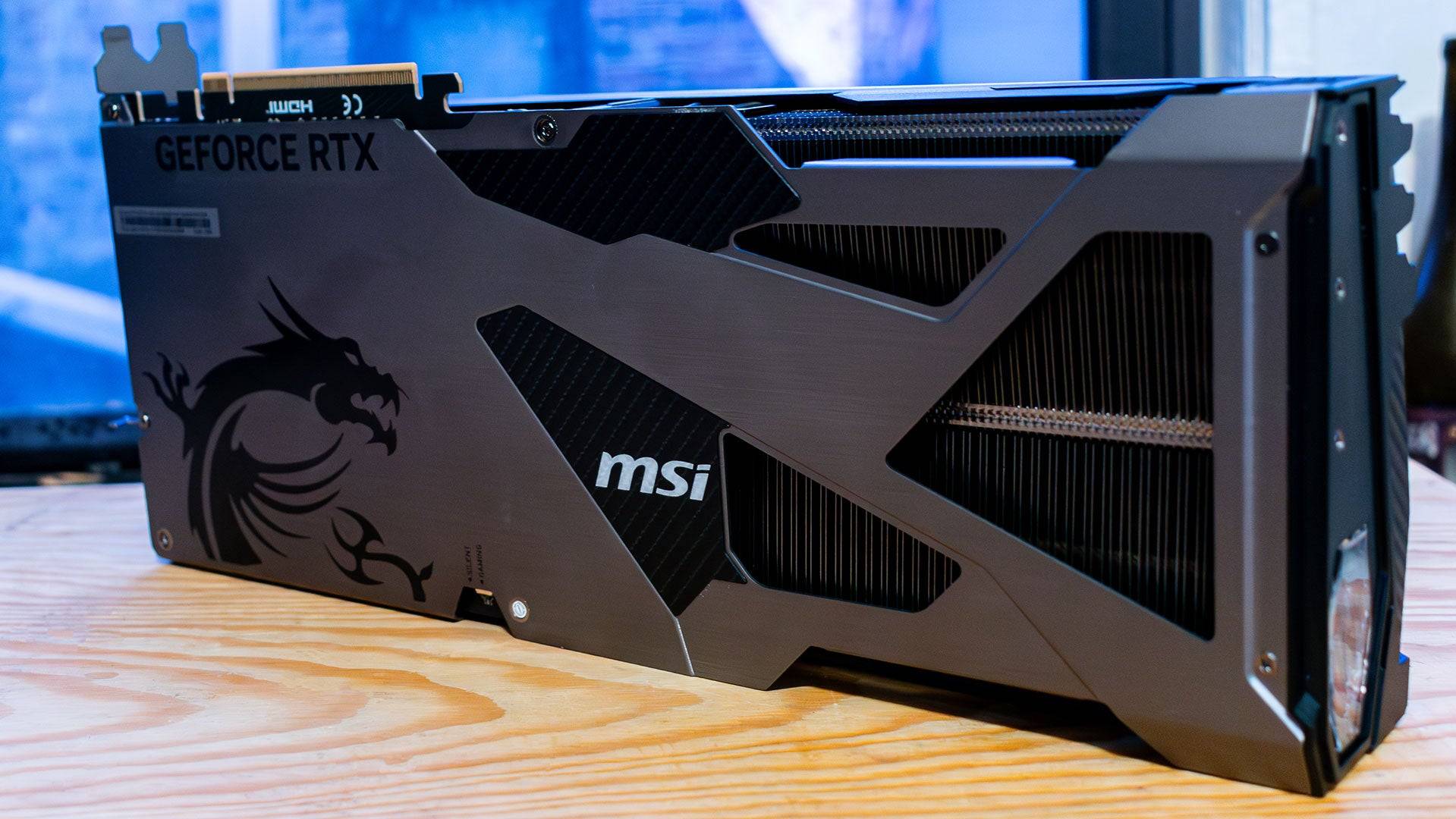
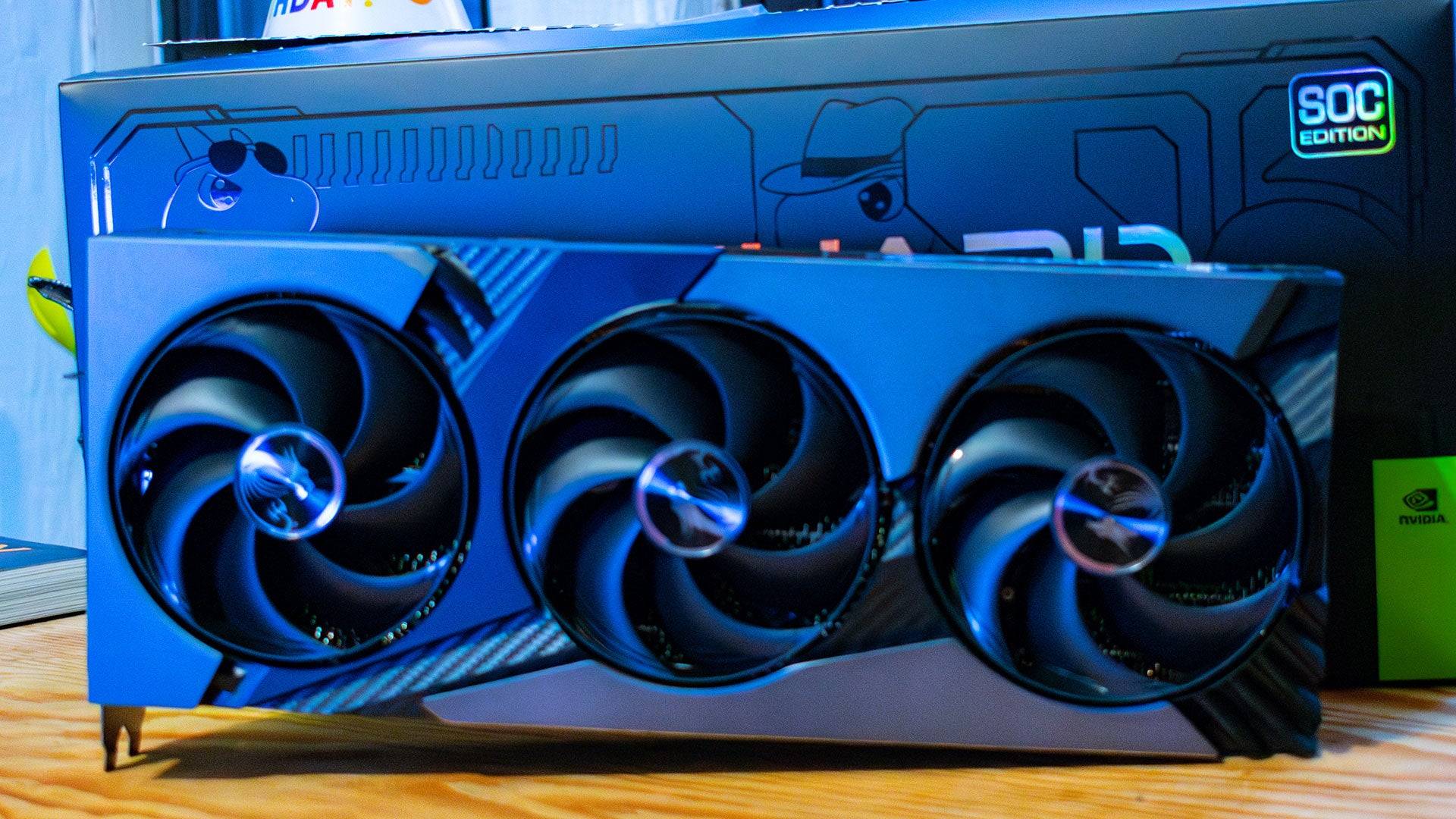
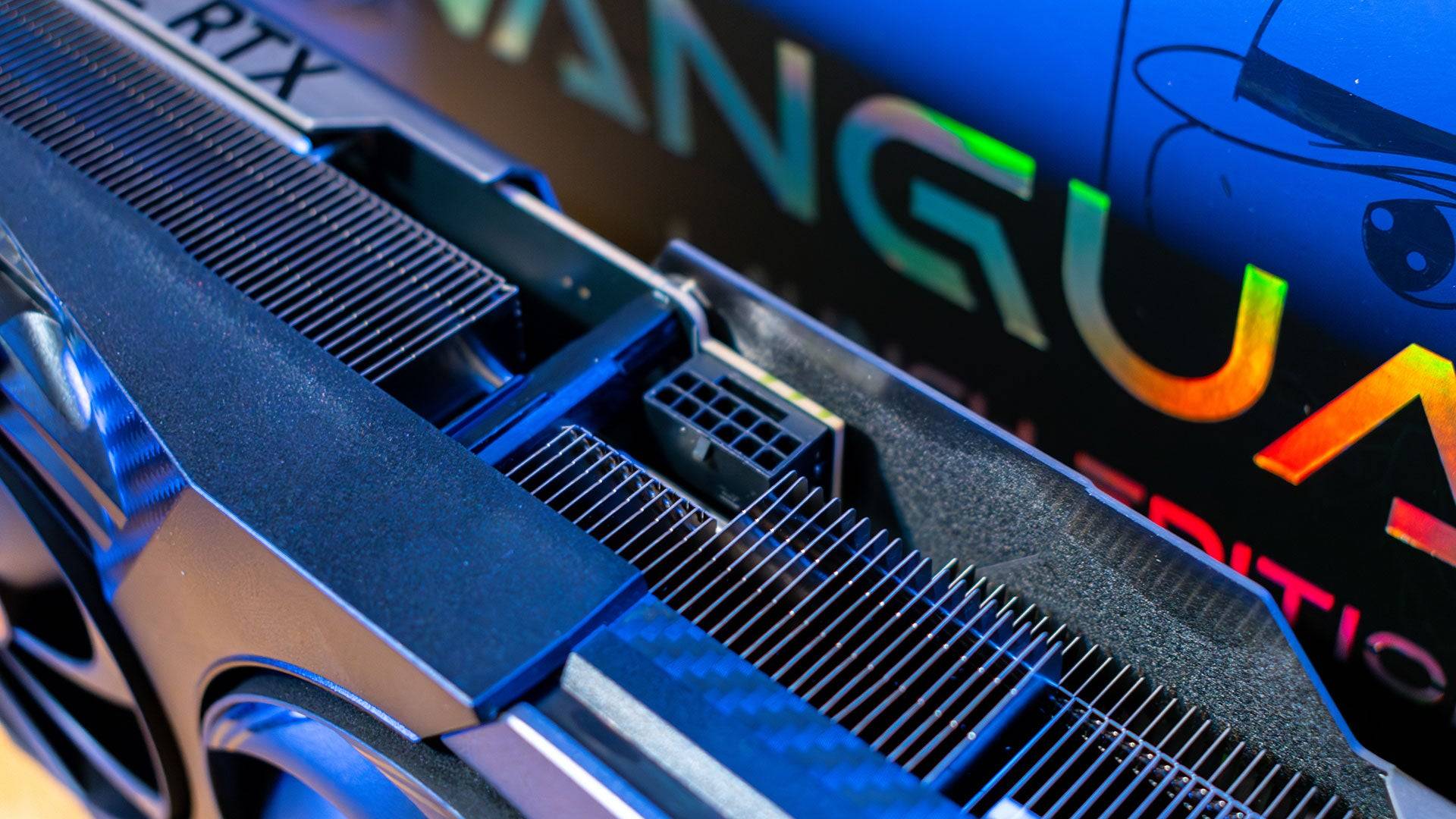
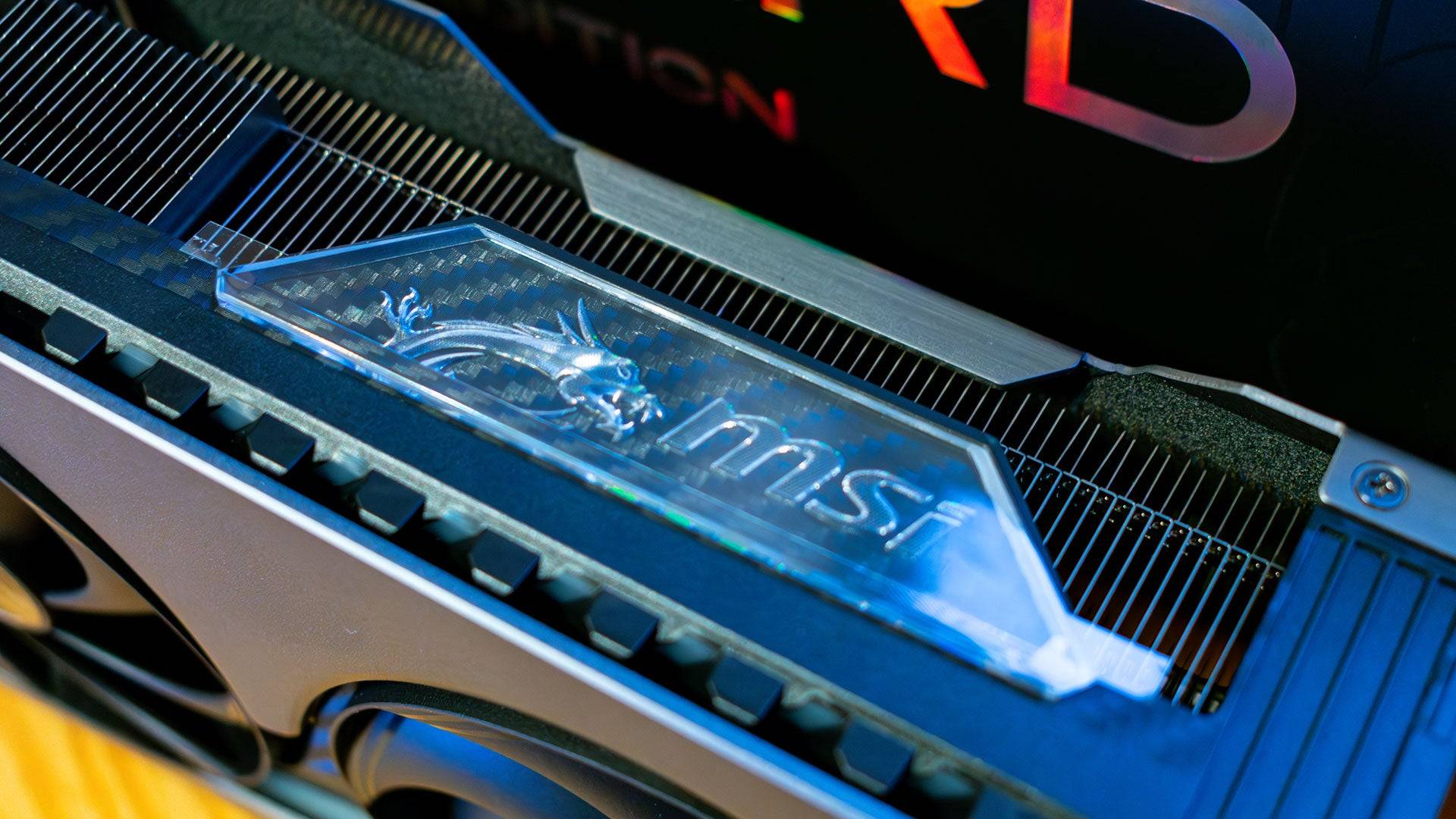
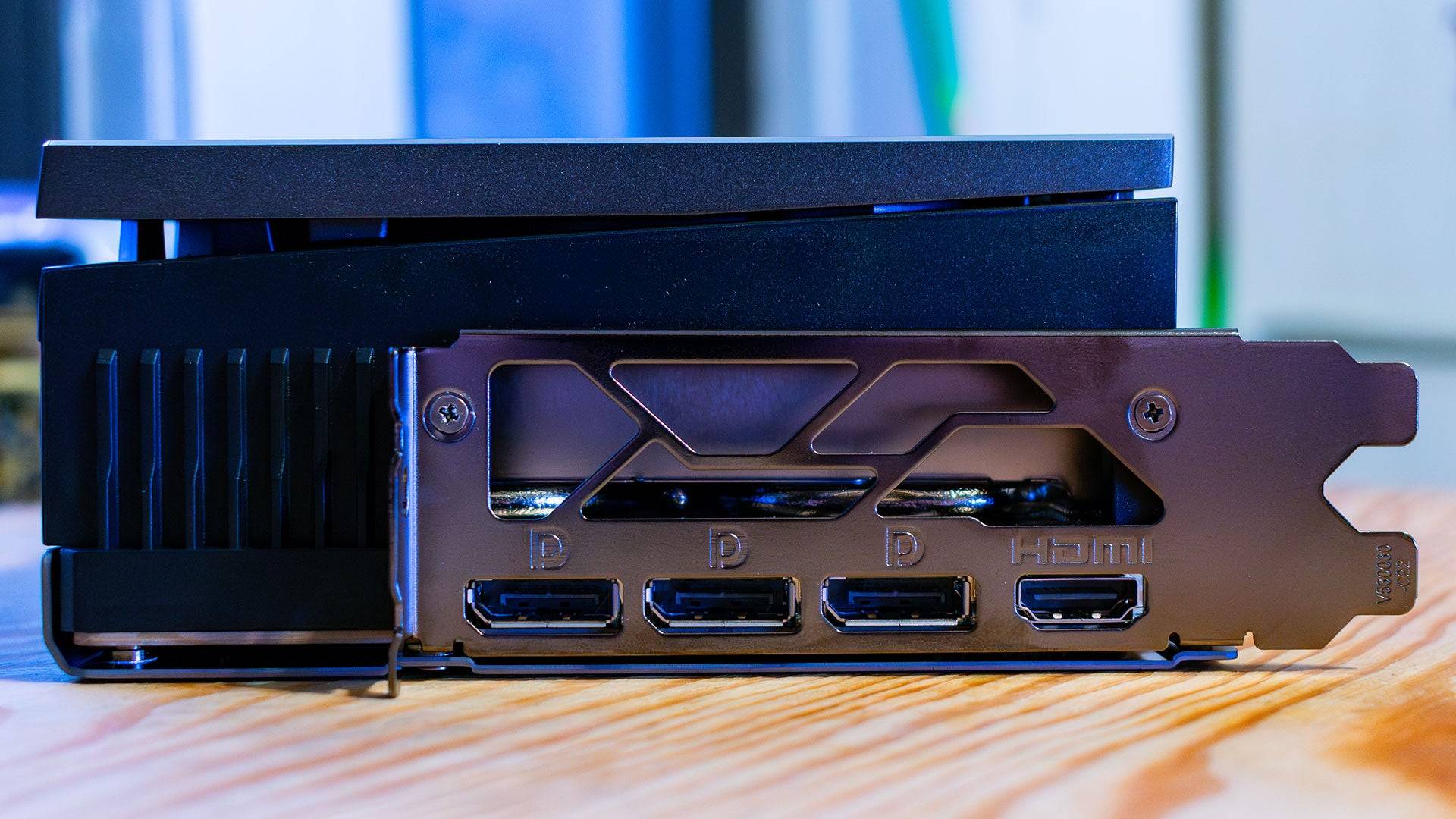

Specs and Features
The Nvidia GeForce RTX 5070 Ti is the third graphics card utilizing Nvidia's Blackwell architecture. Initially designed for AI models like ChatGPT, this architecture has been adapted for gaming GPUs, retaining its AI focus.
Sharing the GB203 GPU with the RTX 5080, the RTX 5070 Ti features 70 SMs (14 disabled from the 5080), resulting in 8,960 CUDA cores, 70 RT cores, and 280 Tensor Cores. Like the RTX 5080, it boasts 16GB of GDDR7 RAM, albeit slightly slower. The Tensor Cores, however, are key. While CUDA cores are more powerful than those in the RTX 4070 Ti, Nvidia leverages AI upscaling and frame generation to maximize performance.
Blackwell introduces a new AI Management Processor (AMP), offloading work previously handled by the CPU. This significantly improves the efficiency of processes like DLSS and frame generation. DLSS 4 utilizes a Transformer model instead of a CNN, enhancing image quality and reducing artifacts.
DLSS 4 also features Multi-Frame Generation (MFG), generating up to three frames from each rendered frame. This boosts frame rates but increases latency, though Nvidia's Reflex technology can mitigate this. With a 300W TBP, the RTX 5070 Ti's power consumption is comparable to the RTX 4070 Ti and RTX 4070 Ti Super. Nvidia recommends a 750W PSU, but an 850W PSU is safer, especially with high-end models.

DLSS 4 – Is It Worth It?
While faster than its predecessor, the RTX 5070 Ti's main selling point is DLSS 4 and MFG. For high-refresh-rate monitors, this technology maximizes performance. However, don't expect dramatically improved latency.
MFG analyzes rendered frames and motion data to predict subsequent frames, generating them via AI. While similar technology was in the RTX 4090, MFG's scale is different—generating up to three frames per rendered frame, potentially quadrupling frame rates. In reality, it rarely reaches a 4x improvement.
Testing in *Cyberpunk 2077* (Ray Tracing Overdrive, DLSS Performance) showed 46 fps at 43ms latency without frame generation, increasing to 88 fps at 49ms (2x) and 157 fps at 55ms (4x). *Star Wars Outlaws* saw latency decrease with 2x frame generation (67 fps at 47ms to 111 fps at 34ms), but increased slightly with 4x (188 fps at 37ms).
While MFG enhances smoothness on high-refresh displays, responsiveness isn't significantly improved. Latency increases are minimal with high frame rates, as the algorithm has more data to work with. Low frame rates (e.g., 30 fps) can lead to noticeable lag and artifacts. The RTX 5070 Ti avoids this issue even at 4K.
Nvidia GeForce RTX 5070 Ti – Benchmarks
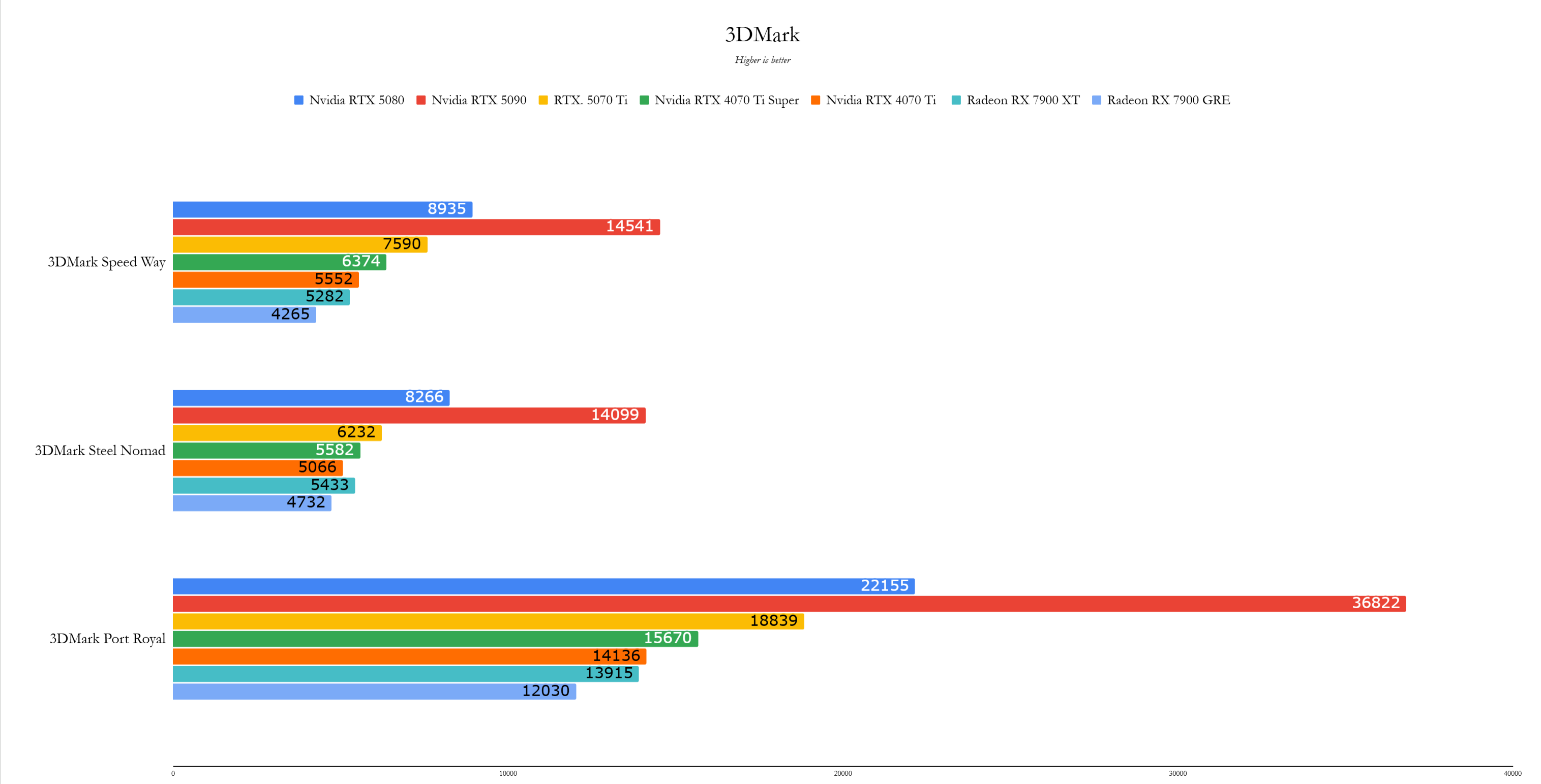
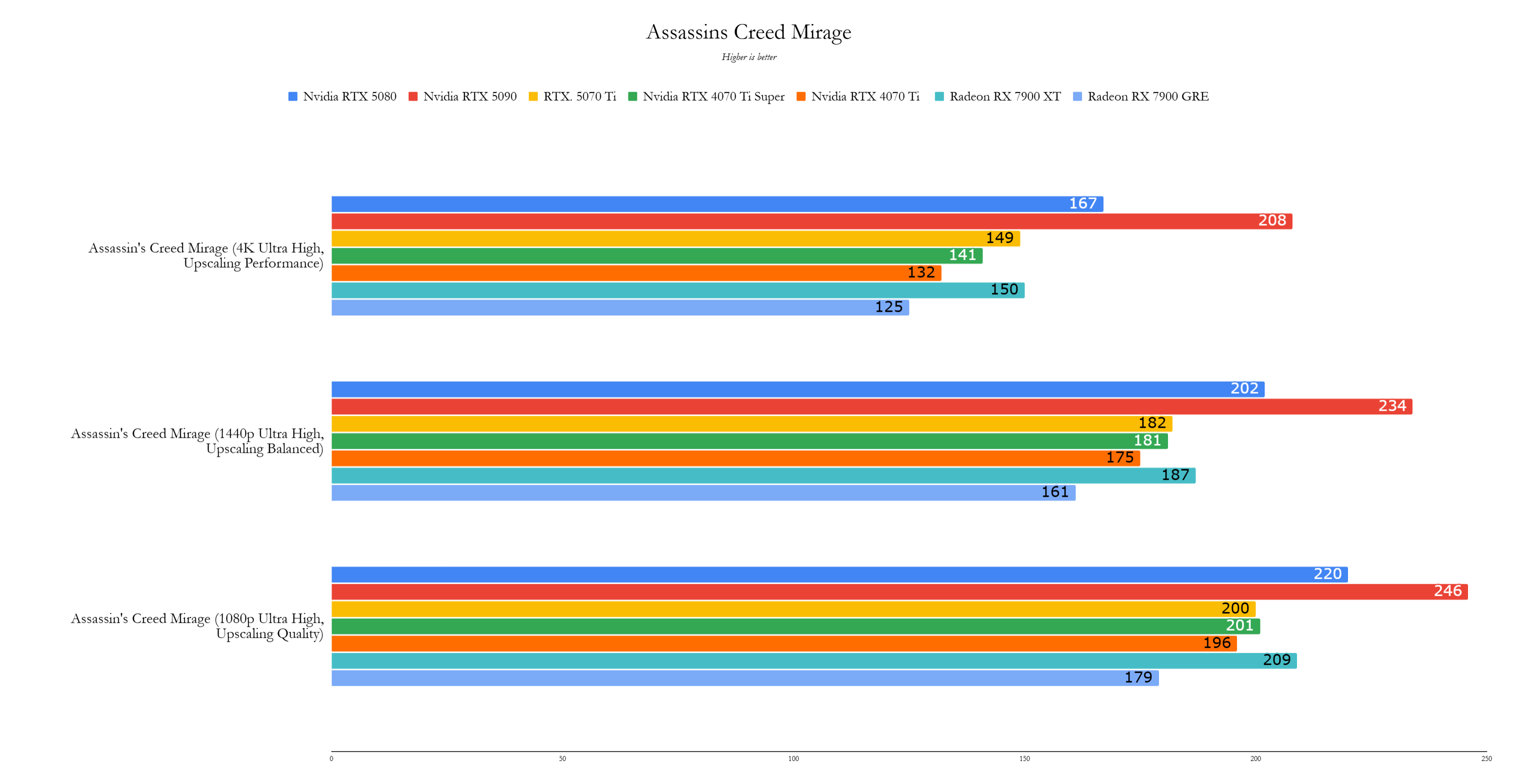
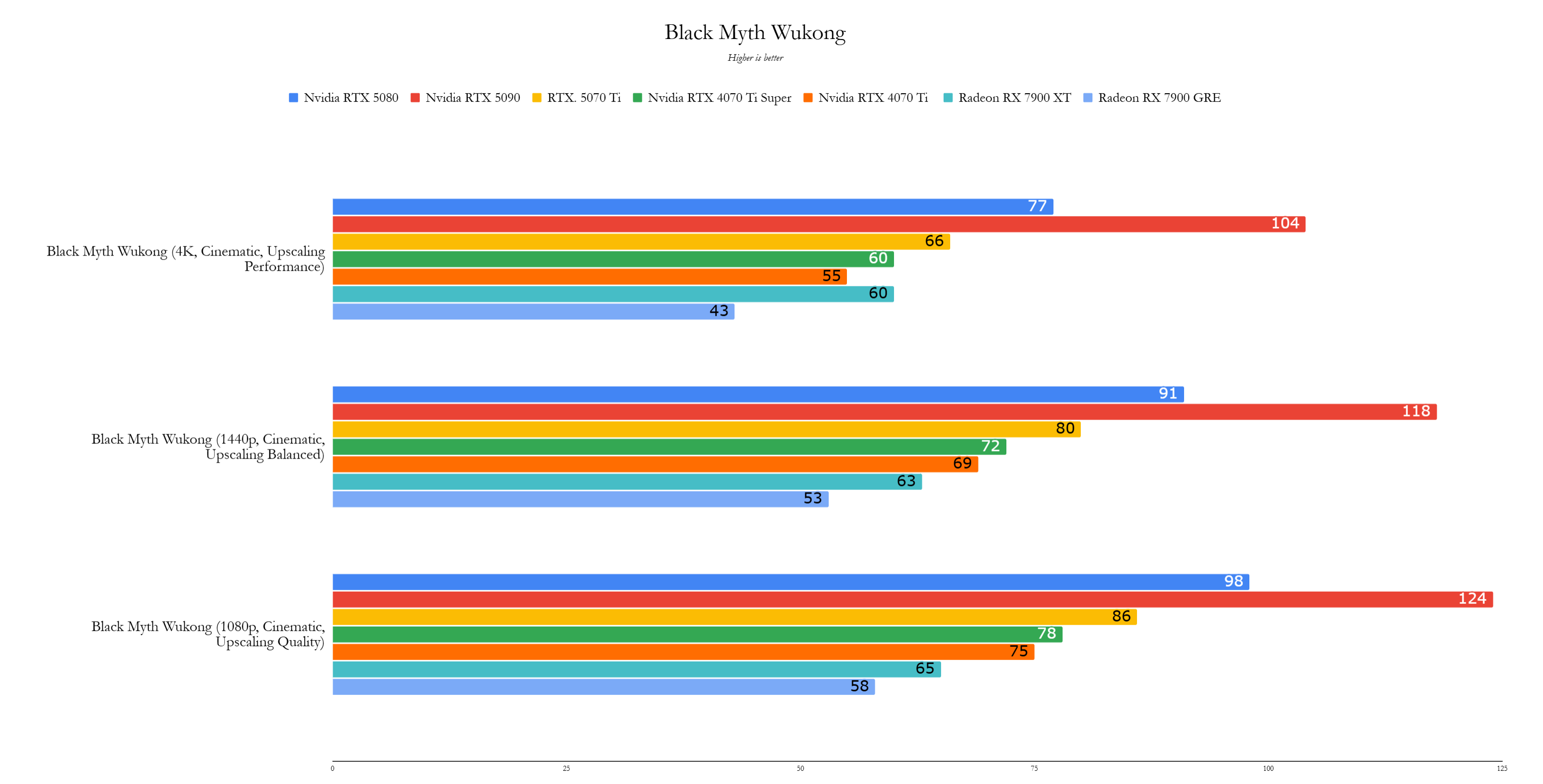
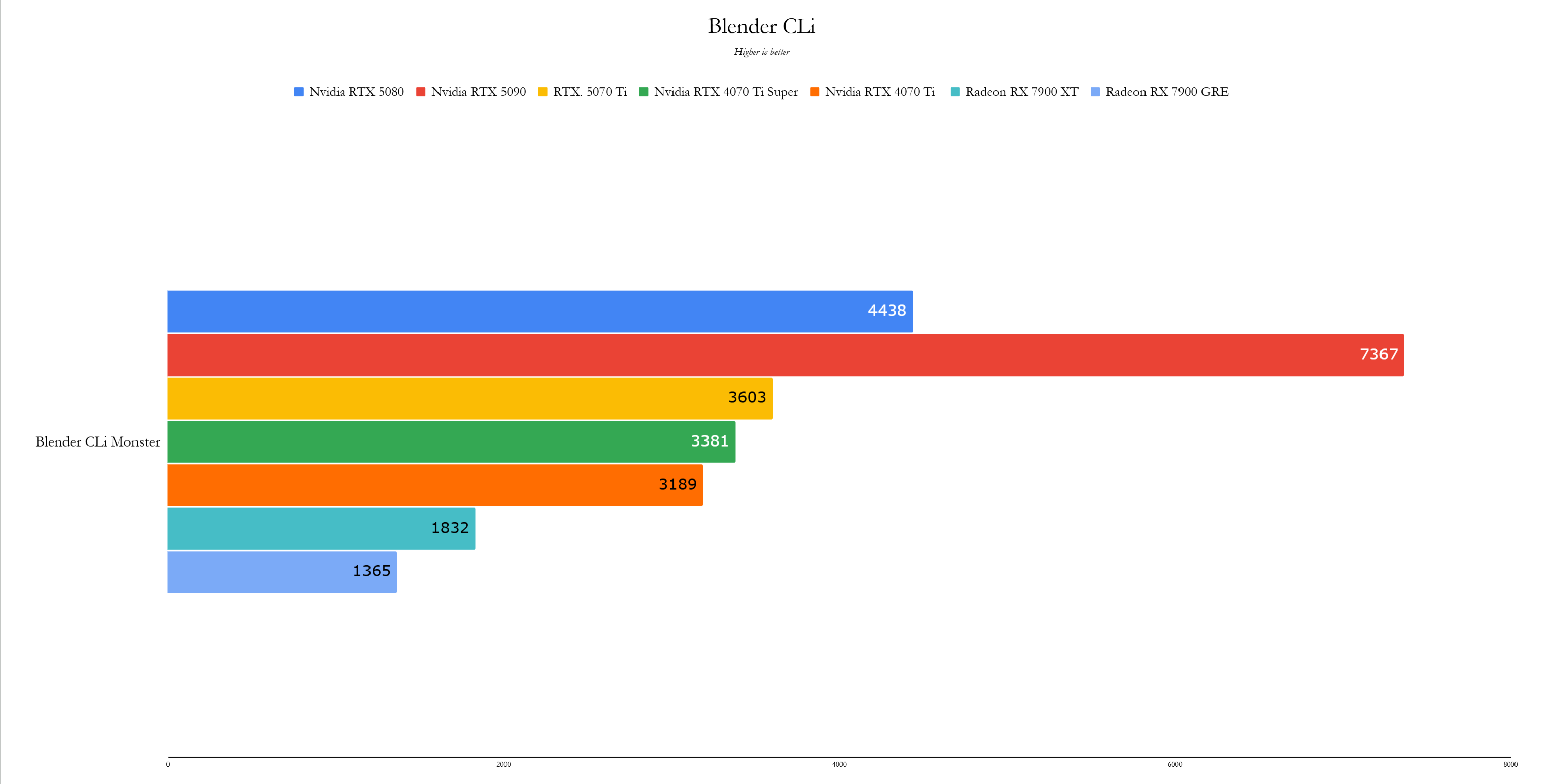
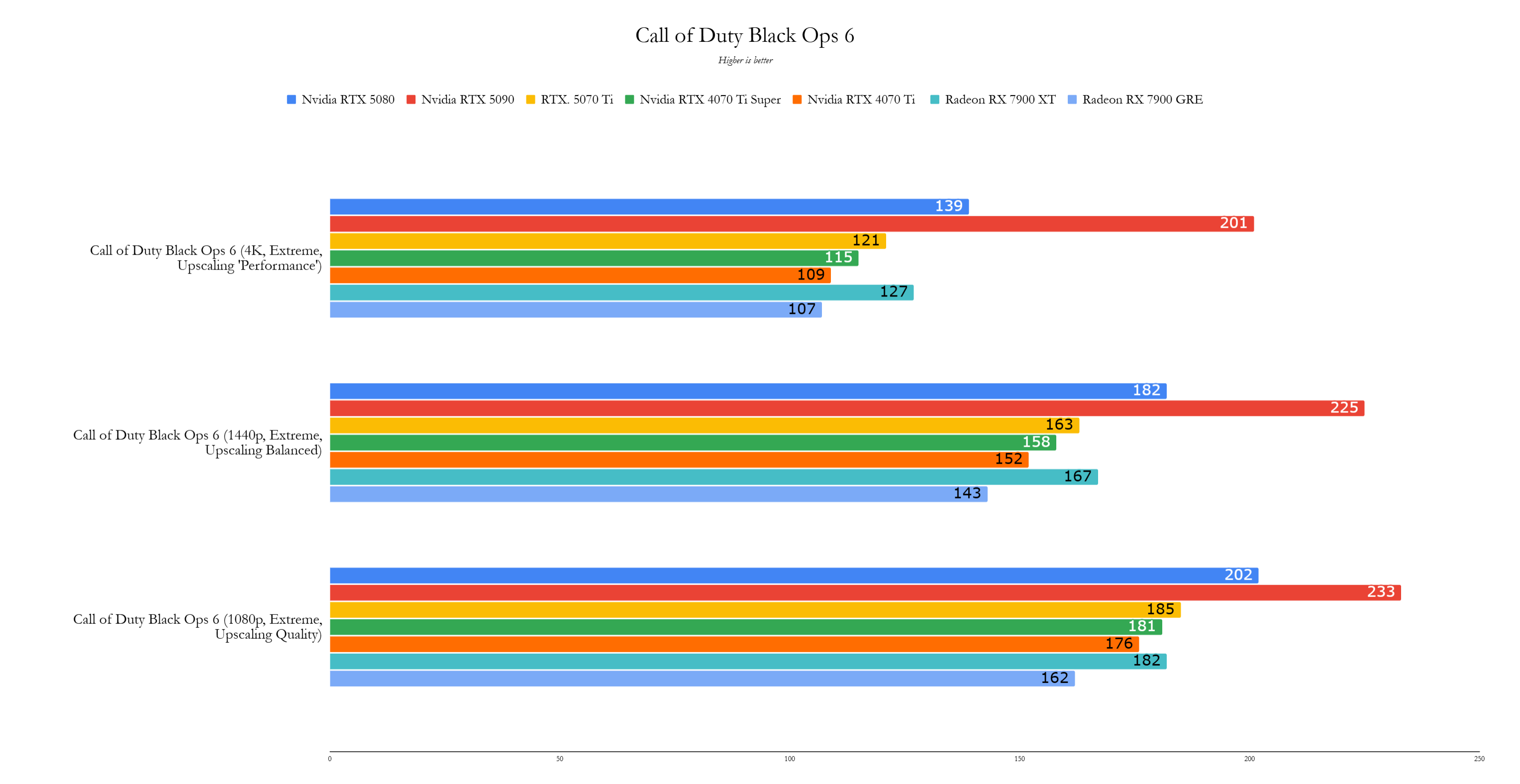
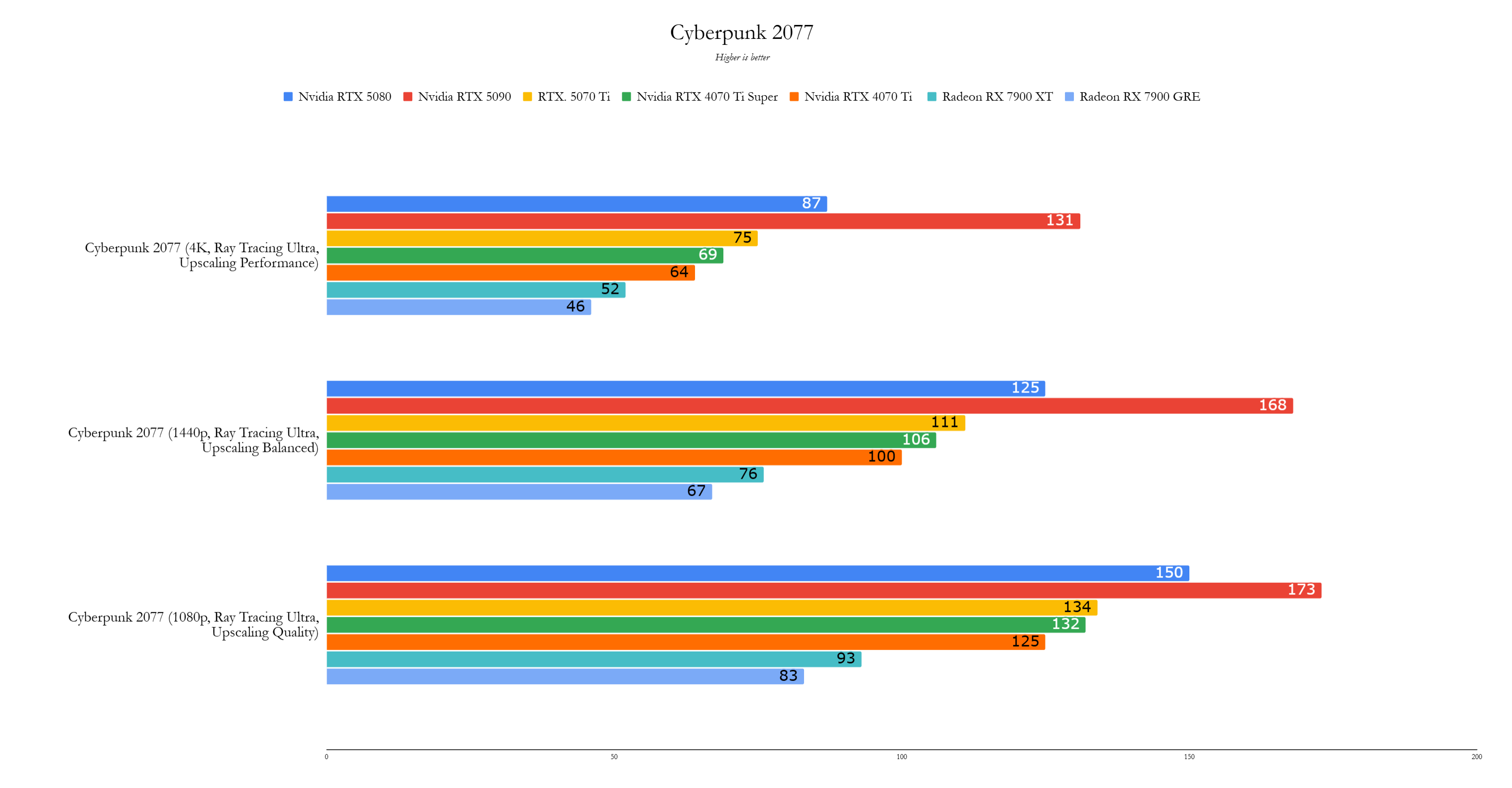
Performance
At 4K, the RTX 5070 Ti is approximately 11% faster than the RTX 4070 Ti Super and 21% faster than the RTX 4070 Ti—a better generational improvement than the RTX 5080, making it the best value card of this generation. It consistently exceeded 60 fps at 4K in demanding games.
Test System: CPU: AMD Ryzen 7 9800X3D; Motherboard: Asus ROG Crosshair X870E Hero; RAM: 32GB G.Skill Trident Z5 Neo @ 6,000MHz; SSD: 4TB Samsung 990 Pro; CPU Cooler: Asus ROG Ryujin III 360. The review unit (MSI Vanguard Edition) was tested at stock settings.
Testing included the latest game versions and drivers (Nvidia cards except the 5070 Ti used Game Ready Driver 572.42; AMD cards used Adrenalin 24.12.1; the 5070 Ti used a prerelease driver). Frame generation and upscaling (DLSS/FSR) were used appropriately.
3DMark Speed Way results: RTX 5070 Ti (7,590), RTX 4070 Ti Super (6,374), RTX 4070 Ti (5,552). Port Royal: RTX 5070 Ti (18,839), RTX 4070 Ti Super (15,670), RTX 4070 Ti (14,136). Game benchmarks show varying improvements over the RTX 4070 Ti, with some games showing smaller gains than others.
Specific game results are detailed [here - this section needs more details, a table would be ideal], highlighting performance across various titles and settings. Overall, the RTX 5070 Ti consistently delivers solid 4K performance.
Even in demanding games like *Black Myth: Wukong*, the RTX 5070 Ti maintains a smooth experience at 4K. *Forza Horizon 5* showed a significant performance lead over competitors, highlighting the card's capabilities.
The Nvidia GeForce RTX 5070 Ti, at its $749 MSRP, represents excellent value for a 4K GPU. It offers a significant upgrade over its predecessor at a lower price point than the RTX 4070 Ti.
-
CD Projekt Red has officially kicked off pre-production for Cyberpunk 2, confirming the highly anticipated sequel while announcing Phantom Liberty's impressive milestone of 10 million copies sold. Of the studio's 730 developers, 96 are now dedicatedAuthor : David Feb 14,2026
-
- Containment Test registration now open- Initial language support: English, Japanese, Chinese- Mobile platform accessibility pendingHotta Studio's ambitious project Neverness to Everness reaches a crucial development phase with Closed Beta sign-upsAuthor : Ryan Feb 11,2026
-
 Southern PokerDownload
Southern PokerDownload -
 Fruit Summer Slots MachineDownload
Fruit Summer Slots MachineDownload -
 Tarot Offline - Card GameDownload
Tarot Offline - Card GameDownload -
 Virtuelles Casino - Craps Spiel OnlineDownload
Virtuelles Casino - Craps Spiel OnlineDownload -
 BrazilyaDownload
BrazilyaDownload -
 Battle Angel Moe moe arena-Download
Battle Angel Moe moe arena-Download -
 Sandy BayDownload
Sandy BayDownload -
 Spell CastersDownload
Spell CastersDownload -
 Brain Puzzle - IQ Test GamesDownload
Brain Puzzle - IQ Test GamesDownload -
 Vampire's Fall: Origins RPGDownload
Vampire's Fall: Origins RPGDownload
- Black Ops 6 Zombies: How To Configure The Summoning Circle Rings on Citadelle Des Morts
- Roblox: Latest DOORS Codes Released!
- Harvest Moon: Lost Valley DLC and Preorder Details Revealed
- Silent Hill 2 Remake Coming to Xbox and Switch in 2025
- Roblox: Blox Fruits Codes (January 2025)
- Roblox: Freeze for UGC Codes (January 2025)








![Taffy Tales [v1.07.3a]](https://imgs.ehr99.com/uploads/32/1719554710667e529623764.jpg)




